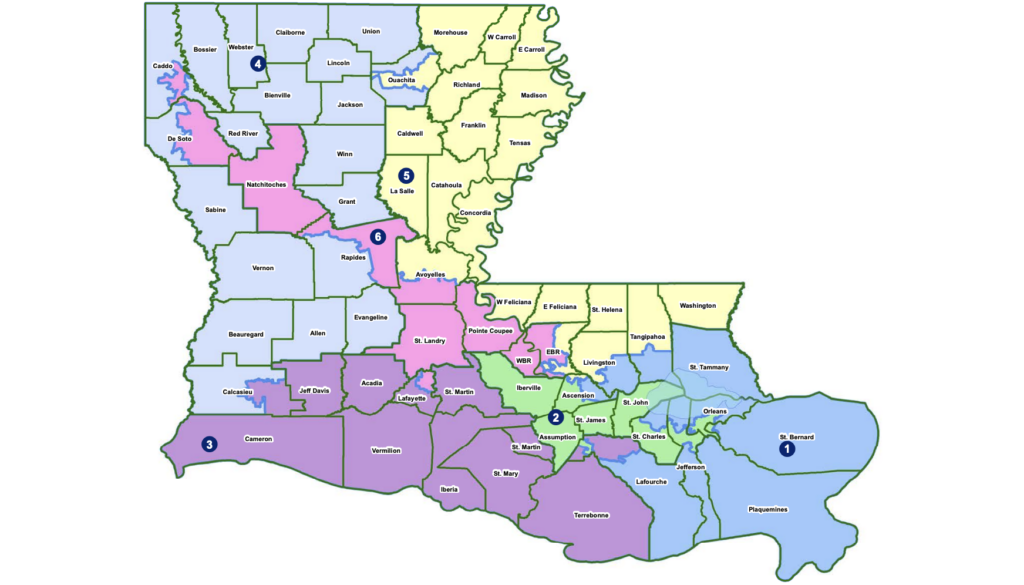
A group of voters have challenged Louisiana‘s recently enacted congressional map, alleging it commits “explicit, racial segregation of voters” in violation of the 14th and 15th amendments.
The map was signed into law by Gov. Jeff Landry (R-LA) last month to comply with a court order to create a second majority-black district after a prior map with only one black-majority district was struck down. The lawsuit, filed by 12 nonblack voters, alleged the new map unlawfully discriminates on the basis of race while dividing communities to create the “six bizarre shapes” of the districts.
“The State has engaged in explicit, racial segregation of voters and intentional discrimination against voters based on race. The State has drawn lines between neighbors and divided communities. In most cases, the lines separate African American and non-African American voters from their communities and assign them to Districts with dominating populations far away,” the lawsuit filed in the U.S. District Court for the Western District of Louisiana said.

“In the matter of a mile, a person can travel in a straight line from a majority-non-African American district to a majority-African American district and then back to a majority-non-African American one,” the court filing continued.
When signing the bill to create the now-disputed map into law, Landry said it was to take “the pen out of the hand of a nonelected judge” and allow the legislature to pass a map in compliance with the order.
The court ordered Circuit Judge Carl E. Stewart and District Judges Robert R. Summerhays and David C. Joseph assigned to the three-judge court in a filing on Friday.
The map at the center of the legal challenge is likely to cost Republicans one seat in the House of Representatives for the 2024 election.
CLICK HERE TO READ MORE FROM THE WASHINGTON EXAMINER
House Speaker Mike Johnson (R-LA) argued against Louisiana lawmakers creating the current map, saying the previous map, with only one majority-black district, was constitutional and they should have let the legal process play out further.
“We’ve just seen, and are very concerned with, the proposed Congressional map presented in the Louisiana Legislature. It remains my position that the existing map is constitutional and that the legal challenge to it should be tried on merits so the State has adequate opportunity to defend its merits,” Johnson said in a post on X when the current map was proposed last month.






